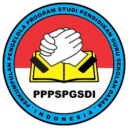PERSEPSI GURU TERHADAP TANTANGAN DAN PELUANG PENDIDIKAN
TEACHER'S PERCEPTION OF EDUCATION CHALLENGES AND OPPORTUNITIES
DOI:
https://doi.org/10.35568/naturalistic.v4i2a.690Keywords:
Challenge; Opportunity; Education; System; Industry 4.0Abstract
This study aims to determine the views of physics and non-physics teachers on the challenges and opportunities of education now and in the future, namely the entry of Indonesia in industry 4.0. Education is not a simple thing that we can ignore because basically education is the basis of the formation of a character. Countries are said to be developed if the quality of human resources possessed is high quality. In this study we used a participatory qualitative research method. The instrument used was a questionnaire response to the challenges and educational opportunities which amounted to 25 statements and was given to 10 educators in West Java. The results of this study indicate the profile of respondents' responses to educational challenges and opportunities is varied and the indicator profile of educational challenges and opportunities is at 70%. This study concludes that the level of educator response to the nature of education is quite low at 70%. The most dominant aspects of challenges and opportunities include the role of globalization and technological development. This study recommends that teachers improve the individual quality of each student and the placement of learning systems that are compatible with the education system in the era of the industrial revolution 4.0.
Downloads
Downloads
Published
Versions
- 2020-07-06 (2)
- 2020-04-30 (1)
How to Cite
Issue
Section
License
Copyright of Journal Naturalistic : Jurnal Kajian Penelitian Pendidikan dan Pembelajaran (e-ISSN:2548-8589, p-ISSN:2528-2921).
Open Access Policy
This journal provides immediate open access to its content on the principle that making research freely available to the public supports a greater global exchange of knowledge.
This journal is open access journal which means that all content is freely available without charge to users or / institution. Users are allowed to read, download, copy, distribute, print, search, or link to full text articles in this journal without asking prior permission from the publisher or author. This is in accordance with Budapest Open Access Initiative.






